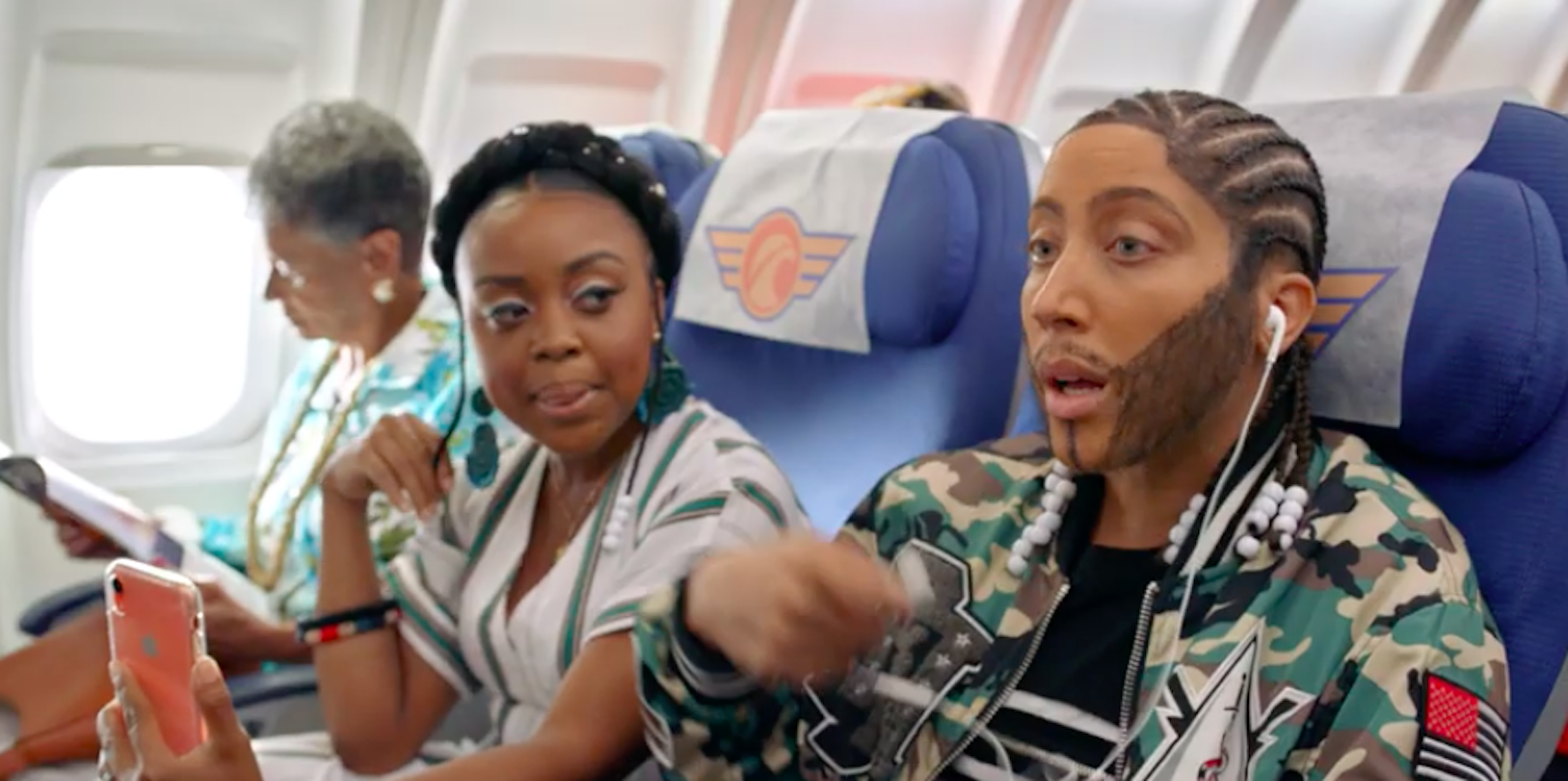Black Women Are More Than a Punchline in HBO’s ‘Black Lady Sketch Show’

Credit to Author: Kristin Corry| Date: Tue, 06 Aug 2019 11:21:19 +0000
For decades, there were prerequisites for late-night television hosts: you must be a white guy, and you got extra points if your name was Jimmy. But in 2017, comedian Robin Thede disrupted the status quo by scoring a Chris Rock-produced BET series, “The Rundown with Robin Thede,” making her the first Black woman in late-night television. The show was canceled after one season, but a year later, she’s back on cable TV making history again with HBO’s new series Black Lady Sketch Show, the first sketch comedy show written by and starring Black women.
The former Nightly Show writer enlisted Quinta Brunson (Broke), Gabrielle Dennis (The Game), and Ashley Nicole Black (Full Frontal with Samantha Bee) for a six-episode series that shows what happens when your writer’s room reflects the characters you see on-screen. Comedians like Martin Lawrence, Jamie Foxx, and Tyler Perry found success with characters like Sheneneh, Wanda, and Madea, using the stereotypes against Black women as a punchline. But this is the first show that invites the audience to laugh with Black women, not at them.
While comics like Kevin Hart gained popularity in 2016, women faced harassment just for booking jobs. That same year, Leslie Jones faced a barrage of racist online attacks when she co-starred in the women-led Ghostbusters reboot. Sasheer Zamata left Saturday Night Live in 2017 after four seasons of being relegated to impersonating Beyoncé, Michelle Obama, and any other Black women the show’s writers saw fit. Last year, Mo’Nique expressed her disdain for Netflix after the company offered her $500,000 offer for a comedy special after it previously offered Amy Schumer, Dave Chapelle, and Chris Rock multi-million dollar deals. When Mo’Nique proposed a Netflix boycott, people questioned why the former Queen of Comedy felt she deserved more money. The pay disparity felt like a double standard, and it showed how the intersections of race and gender can contribute to a comic’s success. People wanted to see Black women on TV—they just didn’t want them to be the ones telling the jokes.
“Black females are an afterthought in comedy,” comedian Luenell told the LA Times last year. “Walk down the street and get 10 people. Ask them to name the top 10 comics of all time and they’ll name 10 men. We’re an afterthought. We’re the ‘Oh, yeah!'”
Executive produced by Insecure’s Issa Rae and Thede, Black Lady Sketch Show is changing that. Using Megan Thee Stallion’s “Hot Girl” as its theme song feels more authentic than brands trying to co-opt “hot girl summer.” Here, “Don’t get mad, hoe / Get a bag hoe,” is a fitting mantra for the unprecedented show. The premiere’s opening skit shows Dennis and Black running for their lives through a forest, similar to last month’s trailer for Harriet Tubman’s biopic. For a brief moment, it seems like the show is sharing in the industry’s obsession with slave narratives until viewers are hit with an unlikely plot twist: Black and Dennis live on a woman’s arm, and the “mysterious fog” they’re running from is just ash.
You don’t have to be a Black woman to understand every joke, but the nuance behind the material is rooted in the Black experience. The Bad Bitch Support Group skit isn’t actually where “bad bitches” go for encouragement—it’s an undercover operation, led by Angela Bassett, to ensure that those women remain consumed with their looks. From behind a double-sided mirror Brunson, who is leading the case study along with a doctor with a Fashion Nova clipboard, says “If women start rejecting impossible beauty standards, we’ll go out of business.” The fast-fashion brand has recently been called out by influencers like Jackie Aina for its lack of Black models.
One of the most poignant skits features Ashley Nicole Black as Trinity, “the CIA’s best and most regular-looking agent.” She’s overlooked because she has the ability to be “regular-looking,” which works to her advantage as a spy. This plays into the fetishization of Black women with European features that contributes to the stigma that being a “regular-looking Black girl” has less value. Black embarks on her mission with a cloak of invisibility, which can be emblematic of how Black Americans feel in everyday life, as seen in Ralph Ellison’s 1952 novel Invisible Man. On her quest to fight her evil twin, Trinity navigates through laser beams by double dutching and incorporating parts of iconic choreography from “Thriller” and “Electric Slide.” The plot gives Black a chance to play the role we’ve seen white men play a million times while allowing elements of Black culture to flow naturally.
Thede’s “specifically cast, universally funny” sketch show proves that inclusion is possible. With each episode, Thede and her crew debunk the idea that Blackness is a monolith, declaring that sometimes diversity can mean a room filled with Black women.
Kristin Corry is a staff writer for VICE. Follow her on Twitter.
This article originally appeared on VICE US.